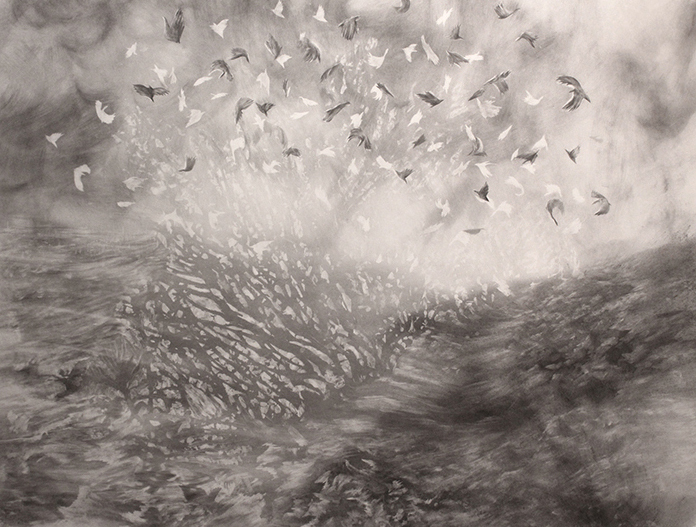
“As I go back in spirit and recall that noble sea, reposing among the snow-peaks six thousand feet above the ocean, the conviction comes strong upon me again that Como would only seem a bedizened little courtier in that august presence.”
Mark Twain, The Innocents Abroad (1869)
⁂
Mark Twain was a watery soul. It was water, whether flowing or standing, that quickened his spirit and nourished his words.
Two years after the end of the Civil War, Samuel Clemens embarked on a five-month tour of Europe and the Middle East on the steamship Quaker City. He inherited the V.I.P. berth aboard the Quaker City when Civil War hero William Tecumseh Sherman, busy in his new capacity as commander of the U.S. Indian wars, opted out of the tour. Clemens’ newspaper in California, the Alta, purchased his ticket and paid his other expenses in exchange for travelogue articles. Mark Twain wrote the above words at Lake Como in Italy, in the course of the months-long tour that he would later reshape into his 1869 subscription-service best seller, The Innocents Abroad. The noble sea is Lake Tahoe. Twain, Clemens’ author-persona, mentions it twice: first, in connection with the Italian leg of his tour, and then, a second time at the culmination of his depiction of Syria and Palestine. In both cases, Twain breaks out of his character as a skeptic who satirizes the lands and peoples he visits and his fellow passengers who romanticize them.
In both, spirit contends with spleen directed against “Digger Indians.” The first reverie on the noble sea competes with annoyance over a name (145-6):
Sorrow and misfortune overtake the legislature that still from year to year permits Tahoe to retain its unmusical cognomen! Tahoe! It suggests no crystal waters, no picturesque shores, no sublimity. Tahoe for a sea in the clouds: a sea that has character and asserts it in solemn calms at times, at times in savage storms; a sea whose royal seclusion is guarded by a cordon of sentinel peaks that lift their frosty fronts nine thousand feet above the level world; a sea whose every aspect is impressive, whose belongings are all beautiful, whose lonely majesty types the Deity!”
The curse on the legislature is mild compared to what follows: “Tahoe means grasshoppers. It means grasshopper soup. It is Indian, and suggestive of Indians. They say it is Pi-ute—possibly it is Digger. I am satisfied it was named by the Diggers—those degraded savages who roast their dead relatives, then mix the human grease and ashes of bones with tar, and “gaum” it thick all over their heads and foreheads and ears, and go caterwauling about the hills and call it mourning. These are the gentry that named the Lake.” Mourning [italics Twains’] elicits his passion. What is that he mourns?
Nor do Diggers know poetry, he continues, except for those imagined by his favorite foil, James Fenimore Cooper. “I know the Noble Red Man . . . I have roamed with them, scalped them, had them for breakfast. I would gladly eat the whole race if I had a chance,” he adds in a mock Whitmanesque voice of universal man.
⁂
In significant ways, Innocents was written as and has been received as two separate books. The back-jacket blurb of the Penguin edition calls it a “caricature of the sentimental travel books popular in the mid-nineteenth century” and states that in his irreverent treatment of hallowed European landmarks Twain “was as mocking about American manners (including his own) as it was about European attitudes.” Twain’s account of Palestine is not mentioned.
Page 1 of 5 | Next page